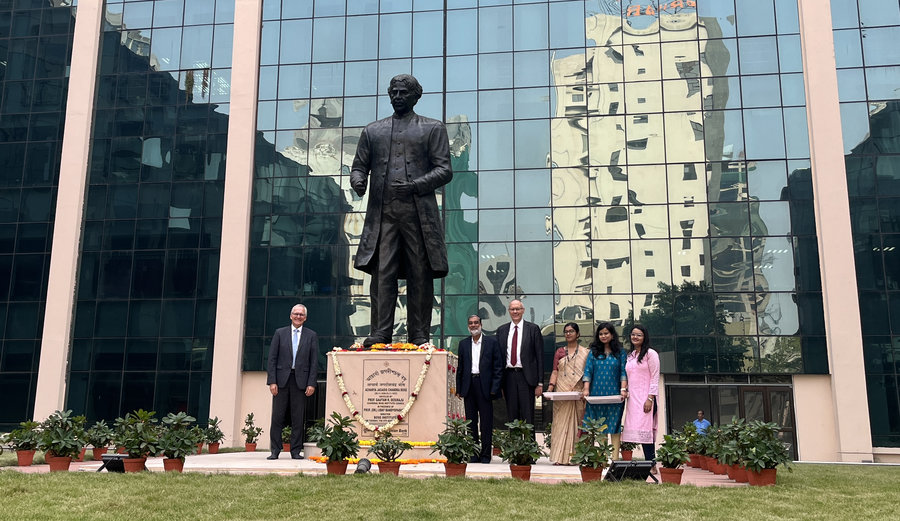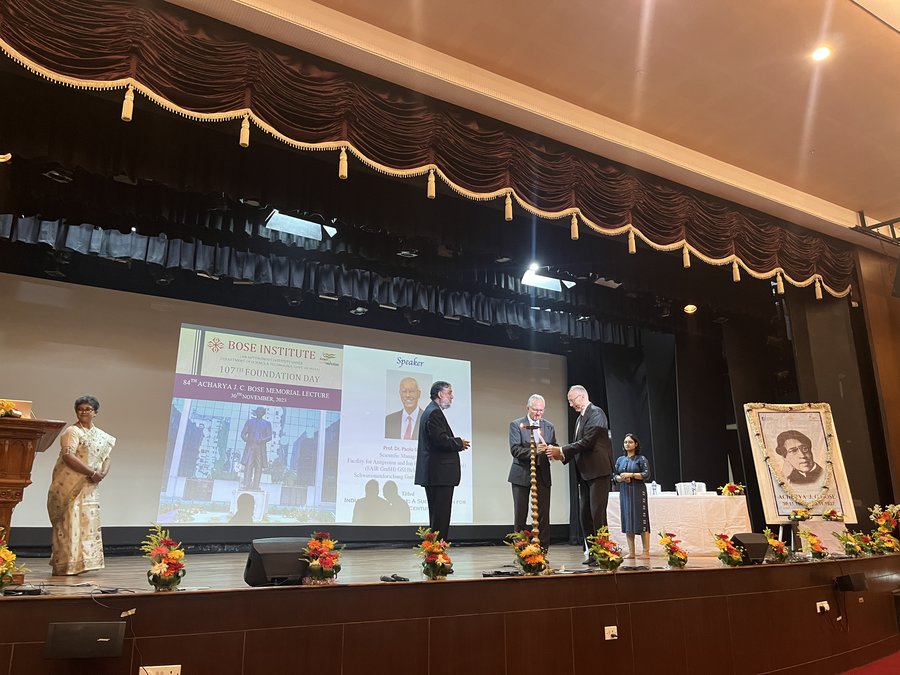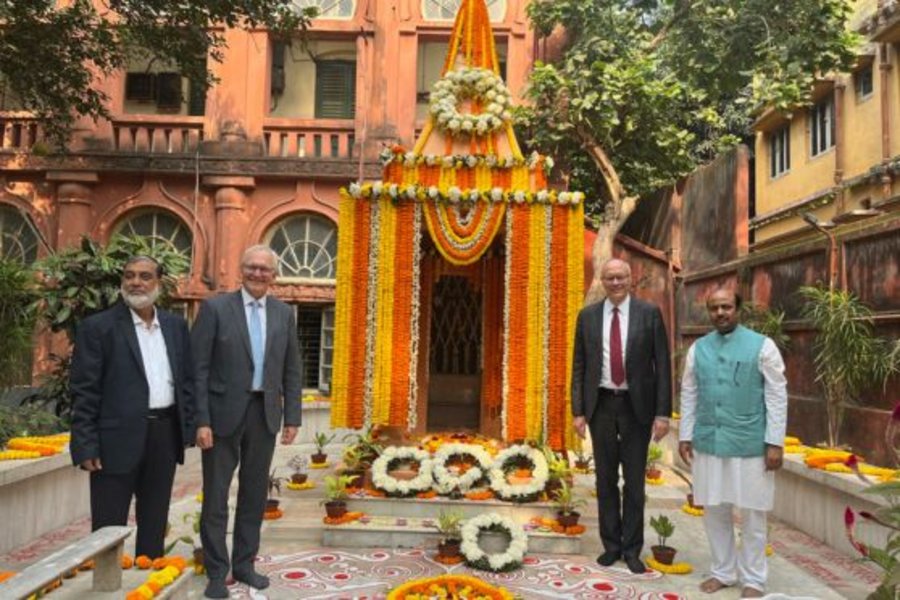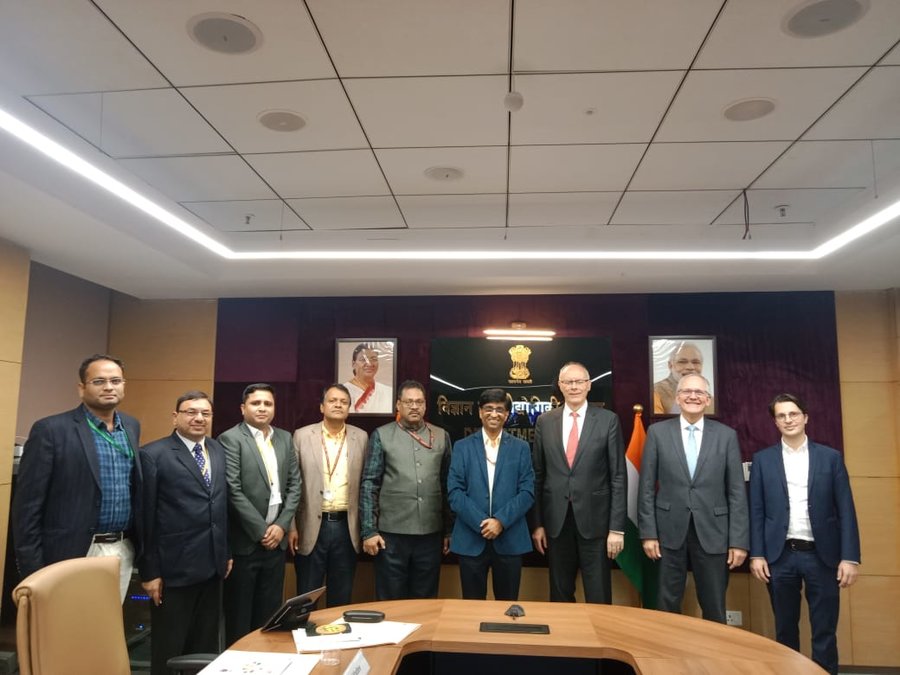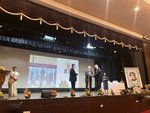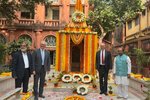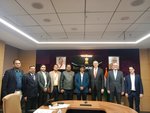Major progress in India for the FAIR project: GSI/FAIR management and expert delegations visit the partner country
28.02.2024 |
During visits to FAIR partner country India, the management of GSI and FAIR as well as expert delegations recently held important talks to set the course for further sustainable cooperation between GSI/FAIR and India within the FAIR project.
The Scientific Managing Director of GSI and FAIR, Professor Paolo Giubellino, and the Technical Managing Director of GSI and FAIR, Jörg Blaurock, met with high-ranking scientists and representatives of the Indian government; of particular importance was a meeting with the distinguished state secretary from the Indian Ministry of Science and Technology, Professor Abhay Karandika. The common goal of the discussions was to further strengthen India's commitment and participation in the FAIR project.
At the same time, a delegation of technical experts from GSI/FAIR’s accelerator division visited the partner country. The delegation met on site with an Indian manufacturer of vacuum components to inspect production for FAIR and to continue joint innovative developments for FAIR.
During the visit, the FAIR management was invited to celebrate the 107th founding day of the prestigious Bose Research Institute. It also marked the 165th birthday of the visionary founder and a prominent personality of modern science in India, Acharya Jagadish Chandra Bose. The Bose Institute in Kolkata, a leading public research institute in India and one of the oldest in the country, represents the Republic of India as a Shareholder in the FAIR Council.
The celebrations began with a flower ceremony at the memorial for Acharya Jagadish Chandra Bose on the Rajabazar campus by Professor Uday Bandyopadhyay, Director of the Bose Institute, who was accompanied by Professor Paolo Giubellino and Jörg Blaurock. The guests visited the traditional lecture hall on campus as well as the historic Jagadish Chandra Bose Museum on campus. A highlight was the 84th Acharya Jagadish Chandra Bose Memorial Lecture: Professor Paolo Giubellino gave an inspiring ceremonial talk on the topic of "India and Big Science: A success path for the 21st century".
Highlighting India’s key role in 'mega science,' Professor Giubellino emphasized the importance of the nation’s wide-ranging scientific endeavors. He underlined how such ‘mega science’ engagements are taking shape globally, in areas ranging from multi-messenger astronomy to solutions to the energy crisis. He also stressed the role of facilities such as the Bose Institute and the international FAIR accelerator center, currently under construction in Darmstadt, as talent factories that open up outstanding opportunities for training the next generation.
Jörg Blaurock presented the current status of the FAIR project at this event. He informed about the upcoming installation phase for the SIS100 ring accelerator, emphasizing the crucial importance of the timely arrival of components, including contributions from India. A number of key components of the accelerator will be developed and manufactured in India. For example, Indian companies will develop and deliver ultra-stable power converters, coaxial cables for the power supply of the magnets, beamstoppers, ultra-high vacuum chambers and superconducting magnets for the FAIR accelerator system.
At the event, the Bose Institute, GSI/FAIR and M/s Siechem Technologies Pvt Ltd signed an agreement for the development and fabrication of power cables and IT and diagnostic cables. A symbolic act during the expert group's visit to the vacuum component manufacturer was also the planting of a tree, which stands as a symbol of the sustainable partnership between GSI/FAIR and India. The visit to India thus not only leaves a lasting impression in terms of the shared history of GSI/FAIR and the Bose Institute, but also paves the way for a promising future of bilateral cooperation in the field of science and technology and in the further development of FAIR. (BP)
India at FAIR
India is one of the founding countries of FAIR. Indian researchers are involved in both the experiments and the accelerators, and design and realize components in Indian scientific and industrial institutions. Indian scientists are decisive in sharpening the overall scientific program of FAIR and in designing the accelerator complex. They are involved in the construction of detectors for the research pillars NUSTAR (Nuclear Structure, Astrophysics and Reactions) and CBM (Compressed Baryonic Matter). Another important area is the construction of high-tech equipment for FAIR’s ring accelerator, such as vacuum chambers, radiation-resistant cables and high-tech current transformers.




